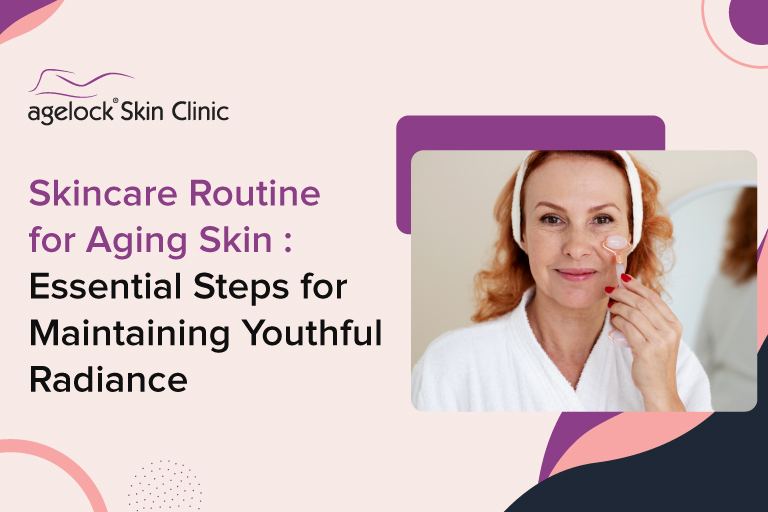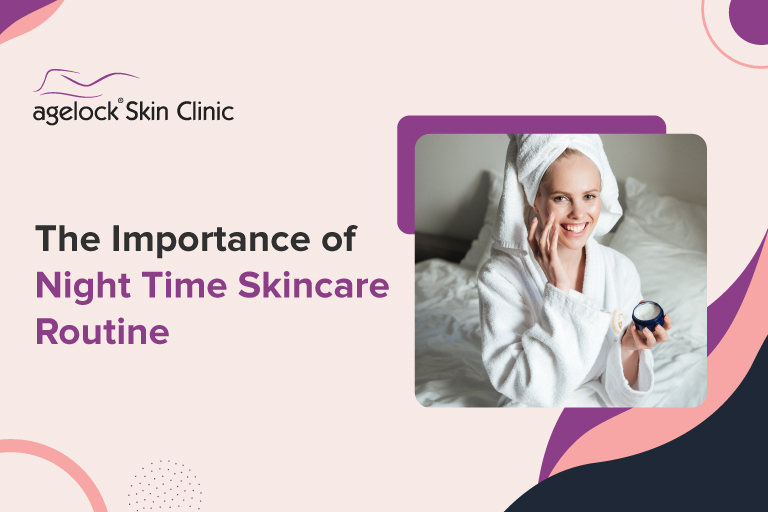In today’s fast-paced world, the importance of a solid skincare routine cannot be overstated. Whether you’re dealing with acne or dryness or simply aiming to maintain healthy, glowing skin, a well-thought-out skincare routine is essential for achieving your skin goals. The beauty industry is booming, with global skincare market revenue expected to surpass $180 billion by 2025, according to Statista. This is a testament to how deeply people care about skin health and how crucial it is to use the right products and follow a regimen tailored to individual needs.
But with so many products on the market, it can take time to figure out where to start. In this blog, we’ll break down the essentials of building an effective skincare routine, from understanding your skin type to choosing the right products. Let’s dive in!
Understanding Your Skin Type
The first and most crucial step in building an effective skincare routine is understanding your skin type. Your skin’s needs can vary significantly depending on whether you have oily, dry, combination, sensitive, or normal skin. Using the wrong products can worsen skin issues, so identifying your skin type is essential for targeted care.
Types of Skin:
- Oily Skin: Skin tends to produce excess oil, leading to shine, acne, and clogged pores.
- Dry Skin: Skin feels tight, flaky, or rough, often experiencing redness or irritation.
- Combination skin: It has both oily and dry zones, often characterized by an oily T-zone (forehead, nose, and chin) and drier cheeks.
- Sensitive Skin: Prone to redness, irritation, itching, or burning from certain products.
- Normal Skin: Balanced skin, neither too oily nor too dry, with no noticeable issues.
To identify your skin type, consider how your skin behaves throughout the day and how it reacts to different environmental factors. Alternatively, you can consult a dermatologist for more specific advice.
Cleansing – The Essential Foundation of Skincare
Cleansing is the cornerstone of any skincare regimen. A proper cleanser eliminates dirt, excess oil, makeup, and environmental impurities, helping to prevent clogged pores and breakouts. A report from Allure highlights that 70% of individuals who follow a skincare routine consider cleansing the most crucial step.
Not all cleansers suit every skin type, so it’s important to choose one that matches your skin’s needs:
- For oily skin, choose a foaming or gel-based cleanser.
- For dry skin, opt for a creamy or hydrating cleanser.
- If you have sensitive skin, select a gentle, fragrance-free cleanser.
Experts suggest cleansing twice daily: in the morning to clear away overnight sweat and oils, and at night to remove makeup and environmental pollutants. However, it’s essential not to over-cleanse, as doing so can strip your skin of its natural oils. Find a balance for the best results.
Exfoliation – Removing Dead Skin Cells
Exfoliation is an essential yet often overlooked step in skincare. Removing dead skin cells reveals smoother, fresher skin and helps prevent clogged pores and acne. A study published in the Journal of Dermatological Science found that regular exfoliation can also reduce the appearance of fine lines and hyperpigmentation, giving the skin a brighter, more youthful look.
Exfoliation can be performed either chemically (using acids like AHAs and BHAs) or physically (using scrubs with abrasive particles). Chemical exfoliants are typically milder and more suitable for most skin types, especially sensitive skin. In contrast, physical exfoliants can be abrasive if overused.
Experts recommend exfoliating 1-2 times a week for normal and dry skin and 2-3 times a week for oily skin. Be mindful of over-exfoliating, which can lead to irritation and sensitivity.
Toners – Restoring pH Balance
A toner is frequently overlooked, yet it is an essential part of your skincare routine. After cleansing, the skin’s natural pH balance may be disrupted, and toner helps restore it. Toners also remove any leftover dirt or oil that might have been missed during cleansing.
If you have oily or acne-prone skin, choose toners that contain salicylic acid, as it helps unclog pores and minimize breakouts. If you have dry or sensitive skin, choose a hydrating toner with glycerin or rose water to replenish moisture without irritating your skin.
Recent trends also highlight the increasing popularity of hydrating toners infused with ingredients like hyaluronic acid. These toners offer a boost of hydration, and help prep the skin for subsequent products.
Serums – Targeted Treatment for Specific Concerns
Serums are concentrated formulas designed to target specific skin concerns. Whether it’s acne, fine lines, dark spots, or pigmentation, a serum can provide the necessary active ingredients to address these issues.
- Vitamin C serums are widely recommended for brightening skin and reducing hyperpigmentation.
- Retinol is effective for reducing fine lines and stimulating collagen production.
- Hyaluronic acid serums hydrate the skin, plumping it and giving it a dewy look.
With a vast range of serums available, it’s essential to choose one based on your skin’s unique needs. Dermatologists often recommend starting with one active ingredient at a time to avoid irritation.
Moisturizing – Locking in Hydration
Moisturizing is a critical step that ensures your skin stays hydrated and soft. Even oily skin requires moisturization, as dehydration can lead to increased oil production and breakouts. The goal is to retain moisture and protect the skin’s natural barrier.
When choosing a moisturizer, consider your skin type:
- If you have oily skin, go for a non-greasy, lightweight moisturizer.
- For dry skin, choose a richer cream or gel-based moisturizer that will lock in moisture.
- Sensitive skin may benefit from calming ingredients like centella asiatica or aloe vera.
Using a moisturizer consistently helps maintain skin elasticity and smoothness.
Sunscreen – The Ultimate Skin Protector
The final and perhaps most important step in any skincare routine is sunscreen. According to the American Academy of Dermatology, sunscreen protects against UV radiation, which can lead to premature aging, dark spots, and skin cancer.
Even if you don’t spend much time outdoors, sunscreen should be worn daily to protect your skin from harmful UV rays. Dermatologists advise applying sunscreen with broad-spectrum protection and a minimum SPF of 30. Make sure to apply it generously and reapply every 2 hours if you’re outside.
Consistency is Key
A skincare routine only works if you’re consistent. Results may take time, so it’s essential to give your routine a few weeks to show improvements. It’s important to remember that everyone’s skin is unique, and what works for one person may not be suitable for another.
Patience and regularity are key to achieving healthy, glowing skin.
Recent News: Skincare Trends in 2024
As we move into 2024, certain skincare trends are gaining momentum. Skinimalism, the concept of embracing natural beauty with fewer products, is becoming a top trend. This minimalist approach focuses on hydrating and protecting the skin rather than using a myriad of products. Furthermore, personalized skincare is making waves. Companies are now using AI technology and skin analysis tools to create custom skincare products tailored to individual needs.
Conclusion
Building a skincare routine that works for you is not about following trends but about understanding your skin’s unique needs. Start with the basics – cleanse, exfoliate, tone, treat, moisturize, and protect with sunscreen – and adapt as you learn more about how your skin responds to different ingredients. As the skincare industry evolves, embracing new research and advancements in ingredients can help you take your routine to the next level.










